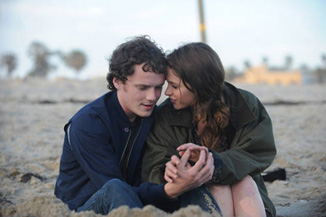|
|
BOP Interview: Like Crazy's Drake Doremus and Felicity JonesBy Ryan MazieOctober 26, 2011
Felicity, I was curious on what sold you to do this picture. Since it was a scriptment, I am assuming that there wasn’t a lot of dialogue written. What made you think, “This is a character that I can handle and can create with a lot of improv?” Felicity Jones: It was from reading the scriptment. Sitting down and reading it really quickly in one-go, which is always a good sign. I didn’t get distracted once. DD: It’s so short you can’t (laughs). It was 50 pages. FJ: And it already had such a strong tone; many of the songs that are in the film were in that initial scriptment. By the time it came to the actors, it was fully realized. There is a truthfulness in telling the story, there is no gimmick, there are no car chases or anything like that. It’s a story about a relationship. And when I was reading it, it felt absolutely honest and an extraordinary thing to do through improvisation. What was the improv like for you? FJ: There is a lot of information already given to you so that you don’t feel like you are coming in totally unprepared. We discussed the objectives and broke down the scenes to know exactly what was going to happen. Then we shoot the rehearsal and you just let the dialogue come. So the dialogue is the least important element in making this type of film. But once you are into it and feel like you can trust the people around you, then it becomes a lot less intimidating.
|

|
|
|

|
Thursday, April 18, 2024
© 2024 Box Office Prophets, a division of One Of Us, Inc.


